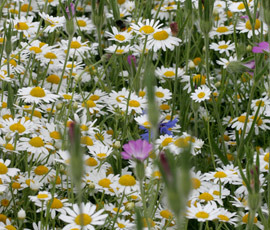DEFRA launches biodiversity offsetting proposals

Farmers could soon be offered payments in exchange for offsetting land for biodiversity under government plans to boost economic growth and improve the environment.
DEFRA launched a public consultation on Thursday (5 September) on how biodiversity offsetting (BO) – a policy which aims to secure farmers long-term income by selling conservation credits to developers – might work in England.
Under the proposals, farmers and landowners who create or restore wildlife habitats will receive income by selling “conservation credits” to developers who need to offset their environmental impacts.
Launching the nine-week consultation, which will run until early November, DEFRA secretary Owen Paterson said biodiversity offsetting was an “exciting opportunity” to improve the environment and rural economy.
He added: “We want to hear from developer and wildlife groups alike on how we can simplify the existing planning process while enhancing our natural environment. There is no reason why wildlife and development can’t flourish side by side.”
An organisation called Environment Bank, which acts as a broker between developers and landowners, announced last month that pilot schemes for biodiversity offsetting had begun in Warwickshire, Coventry and Solihull, Essex, Doncaster, Devon, Greater Norwich and Nottinghamshire.
“There is no reason why wildlife and development can’t flourish side by side.”
Owen Paterson, DEFRA secretary
The pilots were set up following recommendations in the government’s Natural Environment White Paper, published in June 2011.
Biodiversity offsetting has been hailed as a success in 25 other countries, including the USA, Australia and Germany.
The Country, Land and Business Association (CLA) welcomed the launch of the DEFRA consultation paper as “good news for the environment and for the rural economy”.
CLA president Harry Cotterell said: “There are currently huge limitations on public funding for biodiversity and so the creation of environmental markets to fund this work is an excellent idea.”
However, conservation group Friends of the Earth (FoE) warned that offsetting biodiversity would lead to the “destruction of wildlife” by “compensating with green spaces”.
FoE nature campaigner Sandra Bell said: “Nature is unique and complex – not something that can be bulldozed in one place and recreated in another at the whim of a developer.
“Instead of putting nature up for sale the government should strengthen its protection through the planning system and set out bold plans to safeguard and restore wildlife across the UK.”
